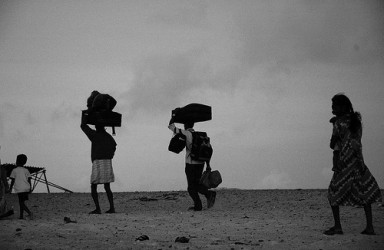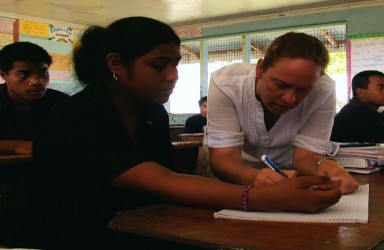The Emergence and Cascading of Pope Francis’ Norm of Social Justice
Since Pope Francis has restated the importance of social justice, this norm is going through a ‘life cycle’, and Catholics are beginning to accept and act upon it.
Keynesianism or New Interventionism? Economic discourses in post-crisis Britain
This paper examines the discourses within the British media following the 2008 financial crisis. The renewed interest in the writings of John Maynard Keynes had been heralded by some commentators as a paradigm shift in economic thought. The paper argues that rather than a Keynesian revolution, British thinking was dominated by ‘New Interventionism’; this conceived of the crisis as temporary contractions in consumer demand and credit lines.
A Road to Cultural Imperialism: An Examination of Winch’s Language Games
In his essay, “Understanding a Primitive Society” Peter Winch claims that cultures are enclosed in language games which are both mutually unintelligible and equally valid. In doing so he is trying to prevent anthropologists from concluding that a culture is ‘wrong’ about reality (i.e. their belief system and how that informs their daily life) (Winch 79). Winch sees such judgement as an open door to cultural imperialism; if a culture is wrong than it stands to be corrected by the culture which judges it as such. He has every reason for such a noble pursuit. Writing in the time of African decolonization, he had born witness to the colonialists’ domination of innumerable cultures. Justified out of a ‘need’ to civilize the inferior savages and support the superior Europeans (through slaves and natural resources) this unequal cultural relationship allowed for utter destruction on the continent.
Sri Lanka Needs Peace, Not R2P
Proponents of “responsibility to protect” or “R2P” have been linking their concept in recent weeks to the waning civil war in Sri Lanka. Are they right to do so? Talk of R2P may well distract from what should be a clear and unified demand to both sides: Cease fire.
Steps Toward Redress for Comfort Women
For decades, the comfort women remained in the shadows because of the deep shame and guilt that they felt as a result of their experiences at the hands of Imperial Japan during the Second World War.
Israel, Refugees, and Collective Identity
Can societies absorb refugees and still maintain their security? An examination of Israeli state practices toward African asylum-seekers can help answer this question.
How Does Science Diplomacy Cope with Challenges Facing Diplomacy More Broadly?
Diplomacy and science diplomacy are vulnerable to the machinations of states and the repercussions of this interaction at the domestic, bilateral and multilateral levels.
Comparing the Foreign Policy Doctrines of Bill Clinton and George W. Bush
Bush’s unilateralism, pre-emption and US primacy displayed a confrontational disposition while Clinton made more of an effort to engage with all corners of the world.
What does the Mafia success concept teach us?
Transnational organized criminal groups were ever since a darling of the sensation seeking media. But since the attacks of 9/11, criminal networks were moved even further into the spotlight, as the sources of income for the historically most deadly and horrific generation of global terrorism.
Short-Term Volunteering and Local Development Projects in Developing Countries
While an important source of aid in achieving local development, short-term volunteering is more suited to the volunteer than to the host community.









